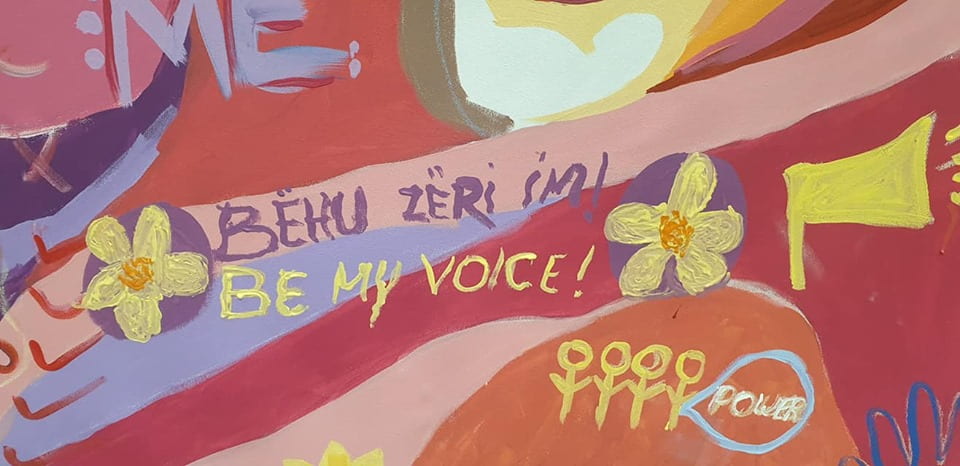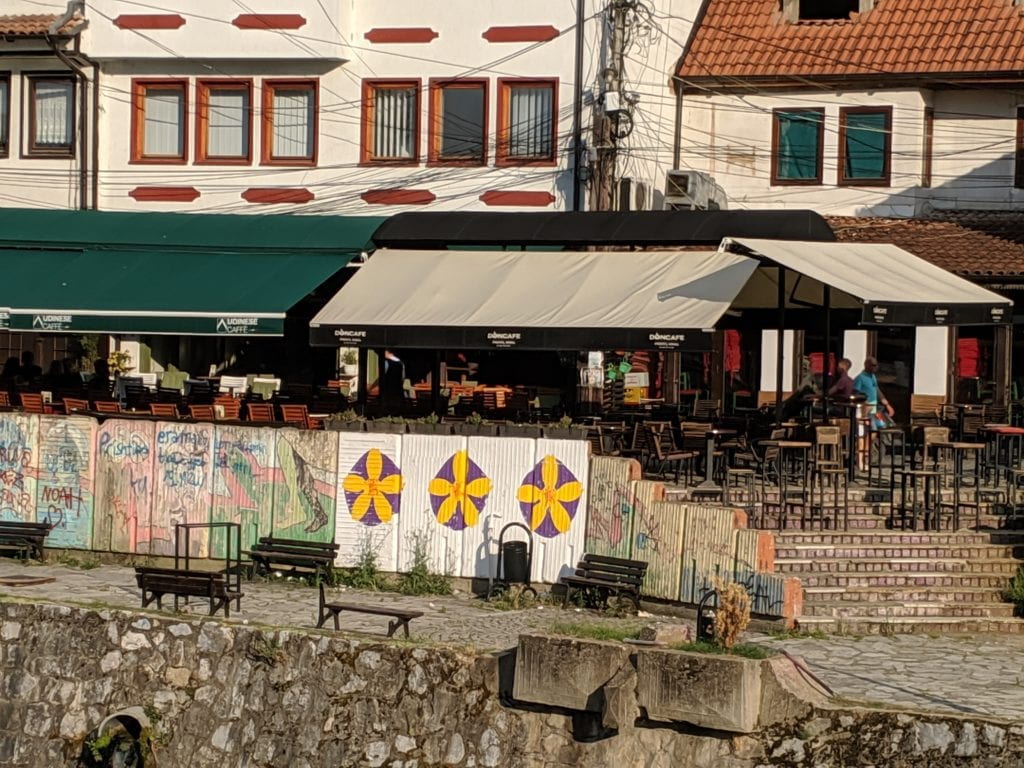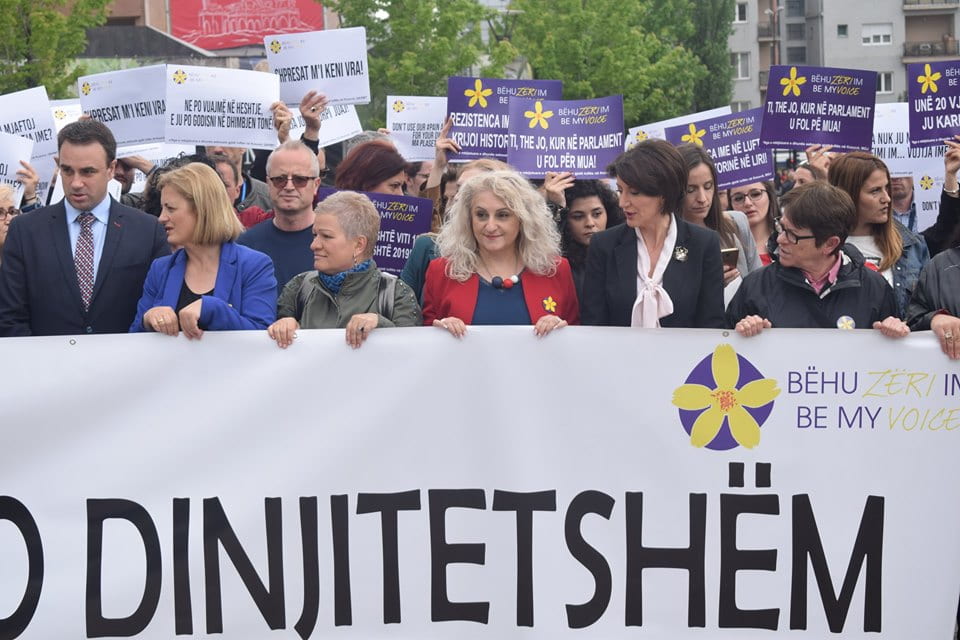Viktoria Pashtriku
Women’s Association Medica Gjakova
Gjakova, Kosovo
One of the most vital initiatives in Kosovo that seeks to challenge the stigma surrounding survivors of wartime sexual violence is the “Be My Voice/Bëhu Zëri Im” campaign. Launched on June 19, 2018–the United Nation’s International Day for the Elimination of Sexual Violence in Conflict, as well as the 20th anniversary of the Kosovo War (1998-99)–in collaboration with the Kosovo Rehabilitation Centre for Torture Victims (KRCT), the campaign promotes advocacy work that encourages Kosovo’s public to openly discuss wartime sexual violence. It also raises awareness on the struggles survivors are facing and provides resources and information for the process of applying for the “recognition and verification of the status of sexual violence victims” (a globally pioneering program in Kosovo that offers survivors monthly pensions).

The phrase, “Be My Voice/Bëhu Zëri Im,” was chosen to challenge people to speak up on behalf of survivors of wartime sexual violence who are not ready (and may never be) to speak up for themselves. In doing so, others can be their “voice” instead. Through this campaign, Medica Gjakova consistently produces promotional work such as social media posts and engagement, TV appearances and interviews, urban artwork, informational events and conferences, human rights protests, and more, in order to engage people to participate with the campaign.




I arrived in Kosovo for my fellowship work at Medica Gjakova just in time for this year’s International Day of the Elimination of Sexual Violence in Conflict and the one-year anniversary of the campaign. I was able to gain some indispensable background exposure to the ways Medica Gjakova engages with locals and raises awareness for survivors of sexual violence. This included the creation of digital media posts and a TV interview to discuss how survivors of wartime sexual violence can come to Medica Gjakova for help and assistance. Kosovo’s “Be My Voice/Bëhu Zëri Im” campaign demonstrates that it is not necessary for survivors themselves to speak up about their experiences, that grassroots local engagement can encourage ordinary people to challenge stigma, and that campaign work is capable of going beyond marketing practices in order to establish worthwhile change.